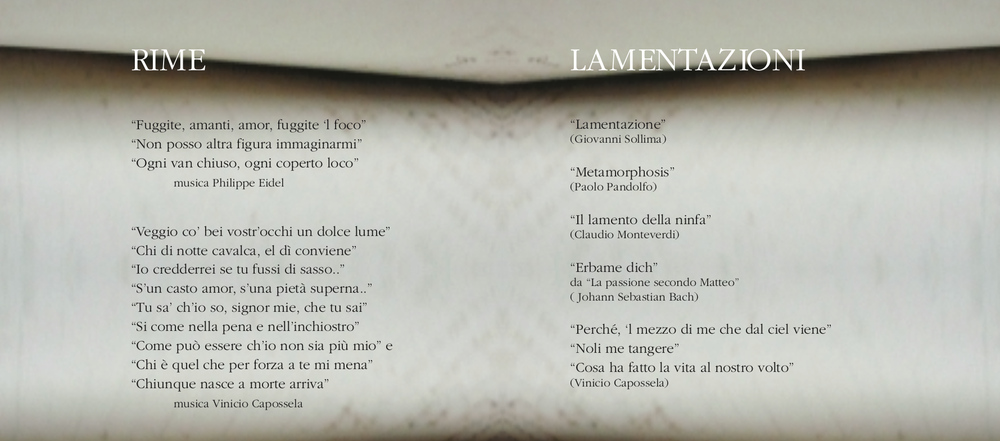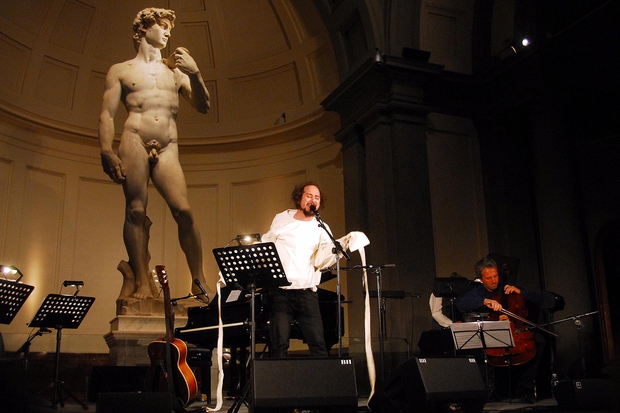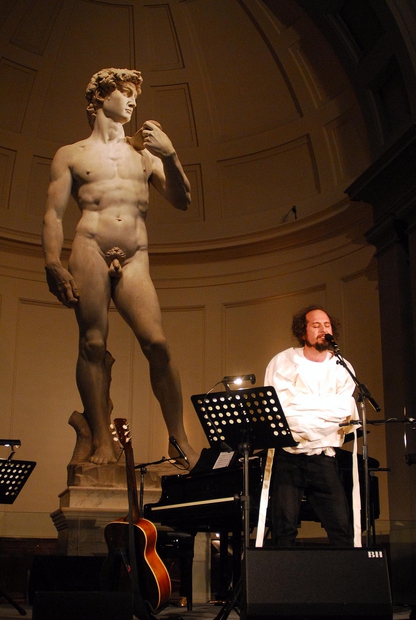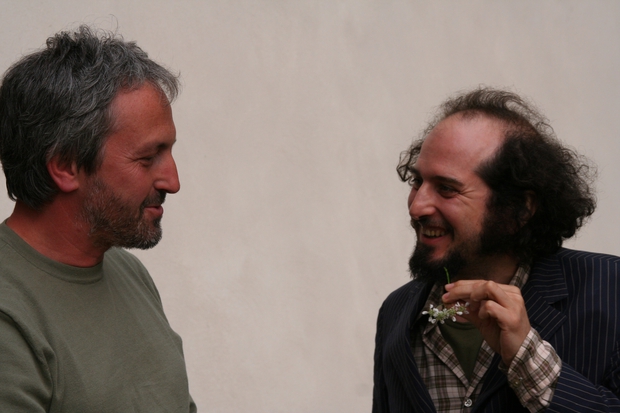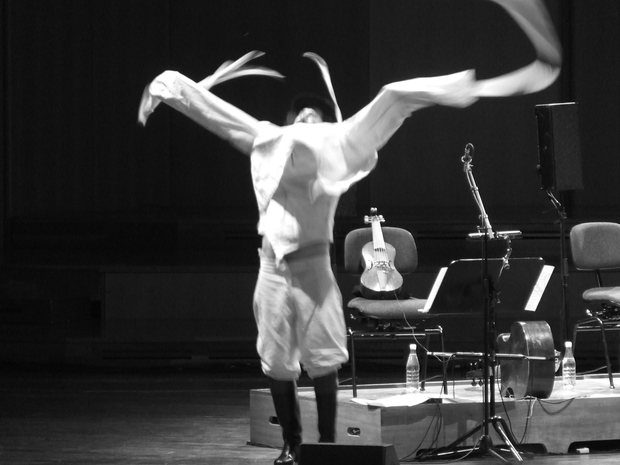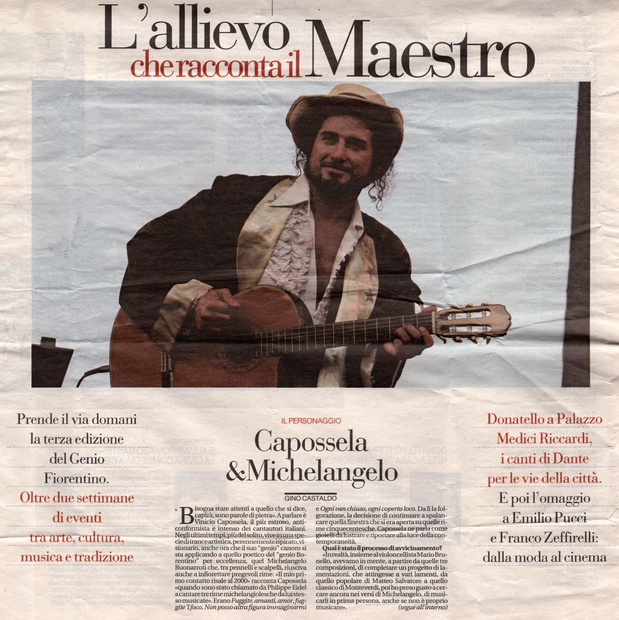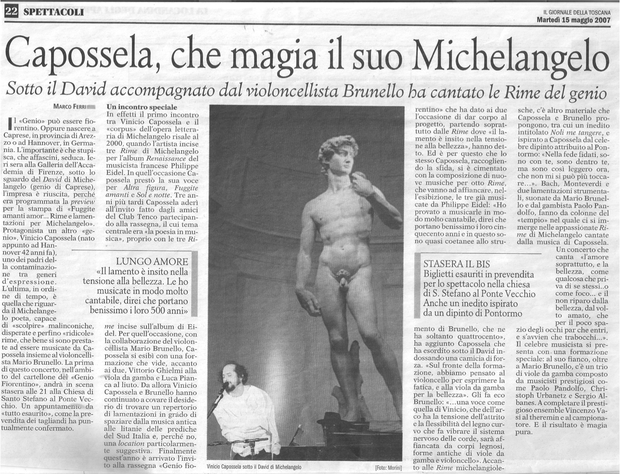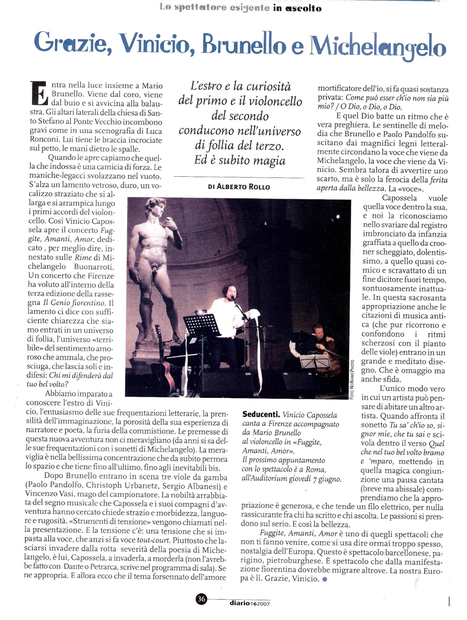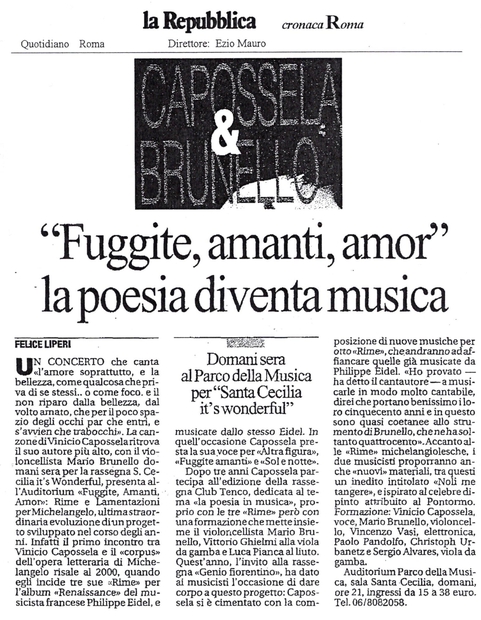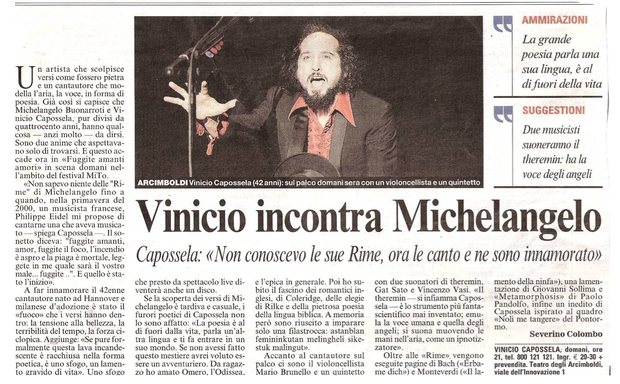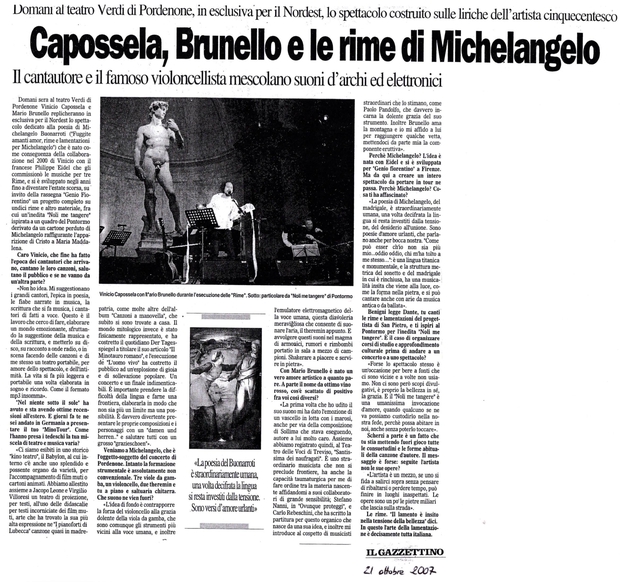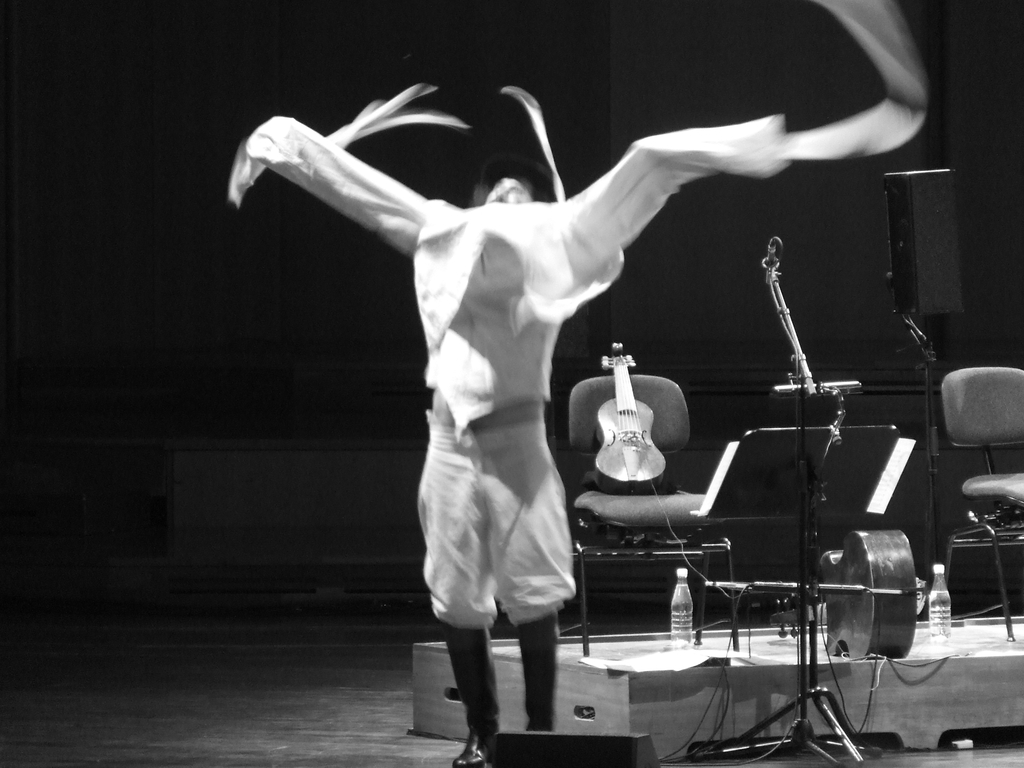
Rime e lamentazioni per Michelangelo
Fuggite, amanti, amor: rhymes and lamentations for Michelangelo
The ruins in these verses come to us like half-buried ruins, stone limbs.
Michelangelo's poems, since they come from this amazing artist, can have a sound and a body because in stone there is sound, because these words come from coloured dust.
With these poems, we get through the field of love desire: when you are struggling for union, you get to know separation. And in fact, you are not so alone as you are when you are in love.
This poetry is flesh for me, a scar that centuries and life cannot heal. The scar that beauty will stay open and alive, because it's the source of desire and hunger.
May 2007
Vinicio Capossela
Three songs performed during these concerts are also featured in French musician Philippe Eidel's 2001 album Renaissance: Fuggite, Altra figura and Tu sai ch'io so.
14th May 2007: Rime e Lamentazioni per Michelangelo
Some images of the Florence concert.
14th May 2007: Rime e lamentazioni per Michelangelo
On 14th May 2007, Vinicio Capossela - with Mario Brunello, Paolo Pandolfo, Christoph Urbanetz, Sergio Albanes e Vincenzo Vasi - performs «Fuggite amanti amor. Rime e lamentazioni per Michelangelo» at David's Tribune, inside of Galleria dell'Accademia in Florence.
Tracklist
I TEMPO
Fuggite amanti amor
Altra figura
Ogni van chiuso
II TEMPO
Lamentazione
Metamorphosis
Il lamento della Ninfa
Some other songs have been performed too, which are, so far, unreleased.
Rehearsing at Villa Demidoff (Florence)
Some images of the rehearsals before the show. With the participation of the writer Sandro Veronesi.
The shows
The show «Fuggite amanti amor. Rime e lamentazioni per Michelangelo» has been performed a few other times between 2007 and 2008 in Italy:
14th May / Florence / Galleria dell'Accademia
15th May / Florence / Chiesa di S. Stefano
7th June / Rome / Auditorium Santa Cecilia
22nd September / Milan / Teatro degli Arcimboldi
22nd October / Pordenone / Teatro Verdi
11th February 2008 / Turin / Teatro Regio
They will never die
He who wrote those lamentations, sometimes on the top of a scaffold, all covered in paint or marble dust, and struggling, will never die.
But also he who read them, five hundred years after, and fell in love with them - like everybody, we would say, but it is not true, not everybody falls in love with them, not even everybody has read them - and reading and loving them he found music in them, even where Giovanni Testori thought that there was no music; he who found this music and set it free, and made it vibrate in the anarchist festival of his voice, he'll will never die, too.
And also he who took this music back to four hundred years, in the elderliness of his cello, he will never die too. And those lucky ones who saw this Italian miracle that was born between this powerful encounter, during the rehersals on a Monday afternoon as much as during the concerts in Florence and in Rome, and in any other place where this miracle was repeated... They also will never die.
Sandro Veronesi
